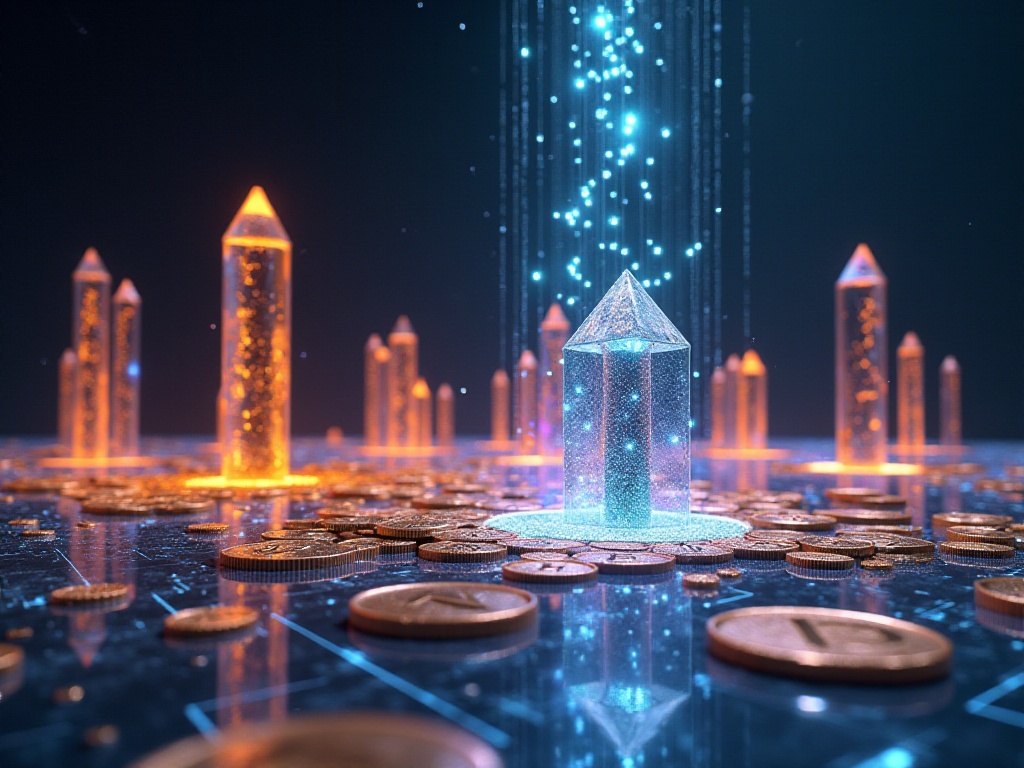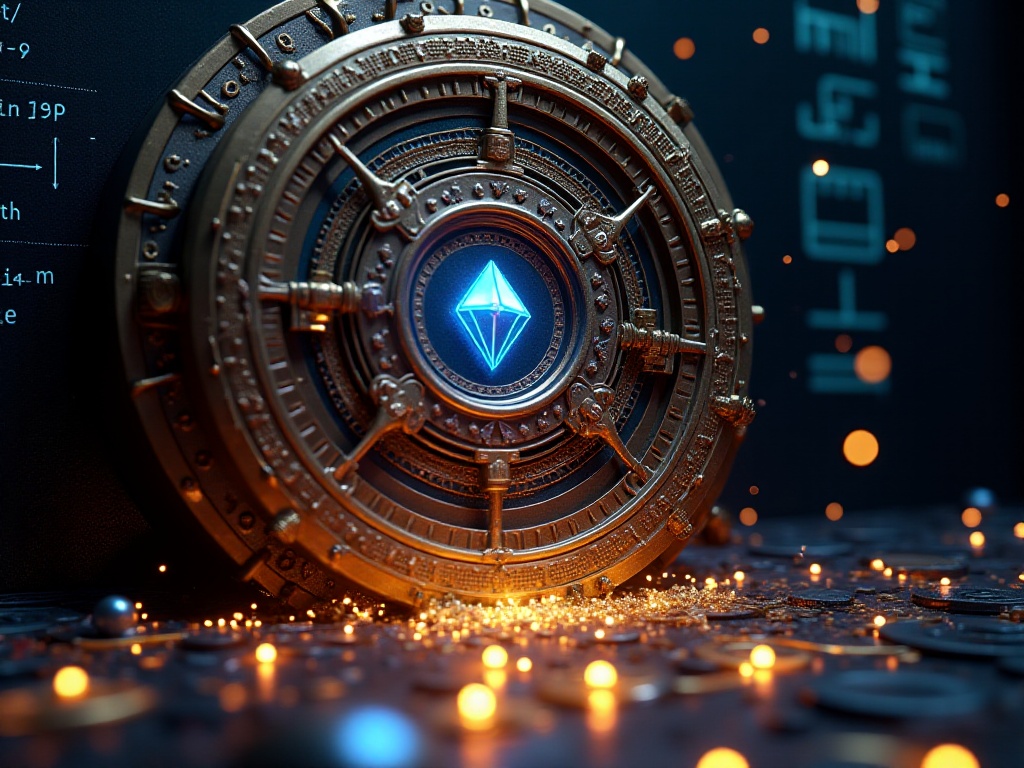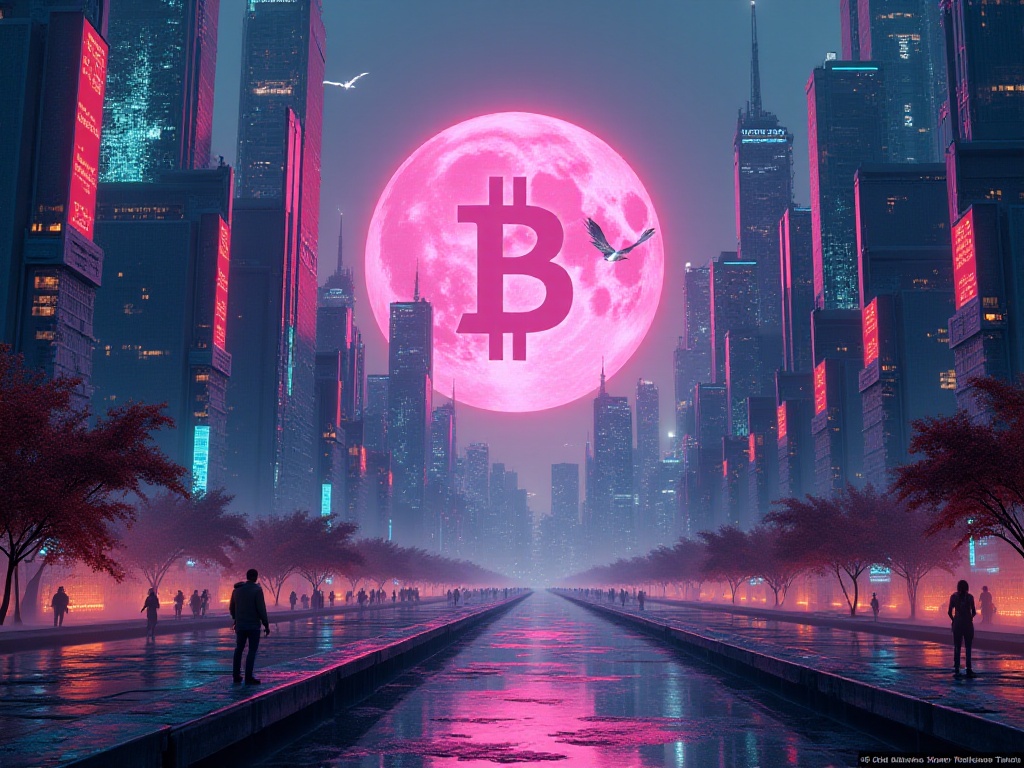

An Unexpected Opportunity
It was an ordinary afternoon, and I was scrolling through Twitter on my couch as usual. Suddenly, a job posting caught my attention - Chain Scout was hiring a product manager. As someone who had been working in traditional internet for nearly five years, I had always been curious and aspiring about the emerging Web3 field.
To be honest, product management work in the traditional internet industry had become somewhat routine. Every day involved similar requirement analysis, feature iterations, and data tracking. While it still brought value to users, it seemed to lack breakthrough innovations. Web3 was completely different - like an uncultivated virgin territory full of unlimited possibilities.
I still remember how I felt the day I submitted my resume - both excited and nervous. I was excited about finally having the opportunity to work with cutting-edge technology, but nervous about whether my traditional internet experience would adapt to Web3's pace. But isn't life about constantly trying and breaking through? So I suppressed my anxiety, carefully prepared my resume and portfolio, and presented my understanding and passion for Web3 with utmost sincerity.
The interview process went surprisingly smoothly. The interviewer focused more on my product understanding and learning ability rather than specific blockchain knowledge. This made me realize that in rapidly developing emerging fields, maintaining an open and learning mindset is more important than existing experience.
Initial Surprise
When I officially joined Chain Scout, I truly understood what it meant to have my eyes opened. This was not just a simple blockchain gaming platform - it was a complete digital world! Here, every participant could find their own place and value.
Developers can use the platform's tools and data to deeply understand user behavior and needs. For instance, they can see every choice users make in games, every transaction, and even changes in time spent. This data acts like a mirror, clearly reflecting the product's strengths and weaknesses.
For players, Chain Scout offers not just a gaming experience, but a whole new digital lifestyle. Here, your gaming achievements are no longer just cold numbers, but real digital assets. The equipment and items you obtain in games are unique NFTs that can be freely traded and even used across different games.
What surprised me most was the platform's token economic system. Through carefully designed token incentive mechanisms, we achieved a self-sustaining ecosystem. Players earn tokens through gaming, which can be used to purchase in-game items or participate in platform governance. Developers earn revenue by providing quality game content while also sharing in the platform's growth benefits through token holding.

Data is King
As a product manager, what fascinates me most is Chain Scout's powerful data analysis capabilities. In traditional internet industries, we often need various tracking points and statistical tools to collect user data. But on the blockchain, every transaction and interaction leaves a clear trace, and this data naturally has completeness and credibility.
What impressed me was our ability to track users' on-chain behavior in real-time. For example, we can see what type of transactions users made at what time, how many tokens they used, and which smart contracts they interacted with. This data is like a detailed user portrait, helping us better understand user needs.
I remember once we discovered an interesting phenomenon through data analysis. A popular dApp had particularly high usage frequency on weekends, with average user stay time reaching 40 minutes, more than double the usual duration. Through deeper analysis, we found these users were mainly young professionals who dedicated their weekend leisure time to gaming.
Based on this discovery, we immediately optimized weekend activity design. We added more social elements, designed team competition modes, and launched limited-time special rewards. These changes had immediate effects, with user engagement increasing by 50% and generating significant word-of-mouth promotion.
Data analysis also helped us identify potential issues. For instance, we noticed some new users had low retention rates after completing beginner tasks. By analyzing their behavior patterns in detail, we found these users often felt confused when facing complex game mechanics. In response, we optimized the beginner guidance process and added more interactive tutorials, which proved very effective.

New Gaming Species
Honestly, before joining Chain Scout, my impression of blockchain games was limited to simple "nurture + earn" models. I thought these games just had users repeatedly perform simple operations to earn tokens through time investment. But reality gave me a wake-up call.
At Chain Scout, the games we're developing completely overturned my understanding. Our flagship game "Evolution Chronicles" is a great example. In this game, players can own unique NFT characters - genetically mutated ape warriors. Each warrior has unique appearances and attributes, generated randomly through smart contracts to ensure each character is one-of-a-kind.
But these NFT characters aren't just collectibles. Players can send their warriors on "expeditions," which is actually a staking mechanism. During expeditions, warriors automatically earn game tokens $BANANITE. Different expedition locations offer different rewards and risks, requiring players to make strategic choices.
Most exciting is the game's PVP battle system. Each warrior has unique skill combinations, requiring players to deeply study these skills' characteristics and combinations. In battles, players must consider not just skill damage and effects, but also energy consumption and skill cooldown times. This strategic depth is completely comparable to traditional competitive games.
We also introduced an innovative "gene recombination" system. Players can fuse the genes of two warriors to create entirely new offspring. This process is entirely controlled by smart contracts, ensuring fairness and randomness. Interestingly, some players have begun studying gene combination patterns, forming unique "breeding" strategies.
The game's economic system is also carefully designed. Besides basic token rewards, we've set up various rare items and equipment. These items are all NFTs that players can freely trade in the marketplace. We've observed some players specifically collecting equipment with certain themes, creating unique collection value.

Community Charm
At Chain Scout, what surprised me most was the community's activity level and creativity. Traditional game communities often limit discussions to the game itself, but here, community members are not just game participants but drivers of platform development.
Behind this activity is our unique CONTRIB token incentive mechanism. Community members can earn CONTRIB tokens through various means, such as participating in game beta testing, providing constructive suggestions, creating game-related content, and helping new users. These tokens not only have economic value but more importantly can be used to participate in platform governance.
I particularly remember a community vote last week. A community member called "Stardust" proposed a creative suggestion to add a "gene mutation event" mechanism to the game. This mechanism would randomly trigger during specific periods, causing temporary attribute changes in all participating warriors, adding randomness and fun to the game.
This proposal sparked heated discussion in the community. Some worried it would affect game balance, while others thought it could bring new strategic possibilities. After thorough discussion and modifications, the proposal ultimately received over 80% support. Seeing an idea from the community become part of the game created an indescribable sense of achievement.
The community's power is reflected not just in game development but also in operations. We have a "game ambassador" team composed of community members who help new players understand game mechanics and answer various questions. This mutual help atmosphere greatly reduces the entry barrier for new users.

Safety First
In the Web3 field, security is always paramount. Whenever I see news about other projects suffering losses due to security issues, I'm grateful for Chain Scout's high emphasis on security.
We use the most advanced cryptographic technology to protect users' assets and data. Each user has their own private key, which is like an uncopyable key - only the holder can operate their assets. Even platform developers cannot access users' private keys. This decentralized feature ensures users have complete control over their assets.
In smart contract development, we employ multiple audit mechanisms. Each new feature must pass internal security team review before going through independent third-party security company audits. This may extend development cycles, but with security issues, we'd rather be slow than make mistakes.
Our trading system also has multiple protection mechanisms. All important operations require double confirmation and have transaction amount limits. The system automatically detects abnormal transactions and suspends related functions for investigation when suspicious situations are found.

Promising Future
Every day of this month at Chain Scout has been full of new discoveries and challenges. As a product manager, I deeply feel the revolutionary changes brought by Web3. We're not just developing games but building a whole new digital economic ecosystem.
Imagine, in the near future, games might become important venues for people's social and economic activities. The equipment and achievements you gain in games will no longer be just virtual data but real digital assets. You can freely migrate these assets between different games and even exchange them for goods and services in the real world.
More exciting is that as technology develops, game forms will become more diverse. VR and AR technology maturity will bring more immersive gaming experiences. AI technology application will make NPCs more intelligent, creating more realistic game worlds. And blockchain technology ensures this world's fairness and transparency.
In this rapidly developing field, each day brings new ideas and breakthroughs. As a product manager, I feel incredibly lucky to participate in this, witnessing and promoting this digital revolution. What will the future gaming world look like? How will it change our lifestyle? We are writing the answers to these questions.
I believe the future of Web3 gaming is full of unlimited possibilities. It will not only change how we play games but reshape the entire digital economy landscape. And Chain Scout is playing an important role in this transformation. Let's look forward to this exciting future together!






 Français
Français Deutsch
Deutsch Русский
Русский Português
Português Español
Español Italiano
Italiano Türk
Türk
